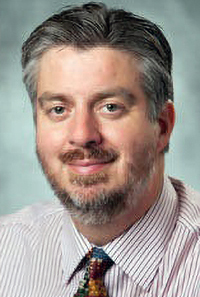Before my family and I moved to Kansas, 18 years ago next month, I didn’t consider summer my favorite season. As a perpetual student and then a college professor, summer vacations were obviously a nice break, and of course summer activities were fun. But compared with flowers in the spring, foliage in the fall, and snow in the winter, summer just didn’t impress me.
The Sunflower state changed that. People complain about the heat, humidity, and wind but I found it all quite wonderful. Getting on my bike and hitting the long, straight county roads, looking across golden wheat fields and rolling green pastures towards a broad and blue horizon, with sunflowers along the way — it was beautiful, and made me a firm fan of Kansas summers.
That did involve some adjustments, though. For example: when are the lazy “dog days” of summer? As a scholar of politics as well as a fan of the season, this actually mattered to me.
Growing up in Washington state, August was the tired, tail-end of summer, the time when everyone mentally checked out, and I carried that assumption into my professional life. Living and studying in Washington D.C.,
August was so disregarded by many who worked there that there were humorous calls to abolish it. August was when the parties and agencies mopped up unfinished business, if they worked at all, just waiting for politics to re-ignite in the fall.
But in Kansas, whose approach to the calendar had historically followed agricultural patterns distinct from what I knew as a child and student, things were different. With the wheat harvest complete before the end of July, schools and governments looked to August as the time to get back into a normal routine. And so, as the years have gone by, I’ve had to accustom myself to treating late July, rather than August, as the time to truly tune out and reset one’s internal clock.
I was thinking about this while speaking to a local political group just last week. I was surrounded by older folks, who’d dedicated years — decades really — of their lives to understanding and promoting the causes and candidates they believed in. One might imagine these folks would be, like me on these hot, late July days, taking it easy. But no — they were fired up, anxious and ready and engaged, filled with questions and challenges and concerns.
Their attitude surprised me, though it shouldn’t have. In a single week they, like all of us, had seen the attempted assassination of one presidential candidate and the withdrawal of another. Far from the summer political calendar closing its eyes and taking a nap, suddenly everything was turbo-charged and dramatic, the news terrible and shocking and inspiring and unexpected. As I commented to some other news junkies, upon my second late-night visit to a local television station in a little over a week, it’s not supposed to be like this until after Labor Day!
Well, so much for those expectations. July is rushing into August and beyond at breakneck speed, with primary elections and brokered conventions looming across the nation, some of whose consequences might well affect even the most local legislative races across our state.
In a political culture supposedly built upon democratic debate, with people taking the time to test different political options carefully, that kind of speed isn’t good. But unless we can all learn to turn off our phones and trust that not everything always needs to be treated as a desperate emergency, we’ll have to make the best of our hurried reality, applying whatever limited breaks we can find occasionally.
Summer’s still here, but maybe not the dog days of old, unfortunately.
About the author: Dr. Russell Arben Fox teaches politic science at Friends University in Wichita, KS







